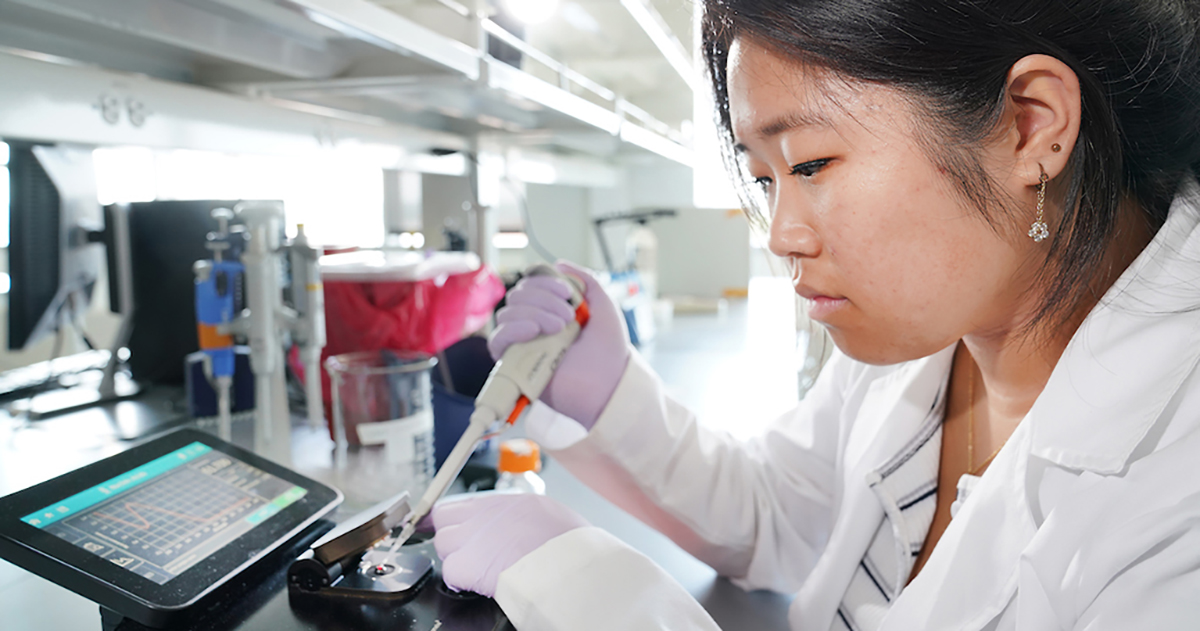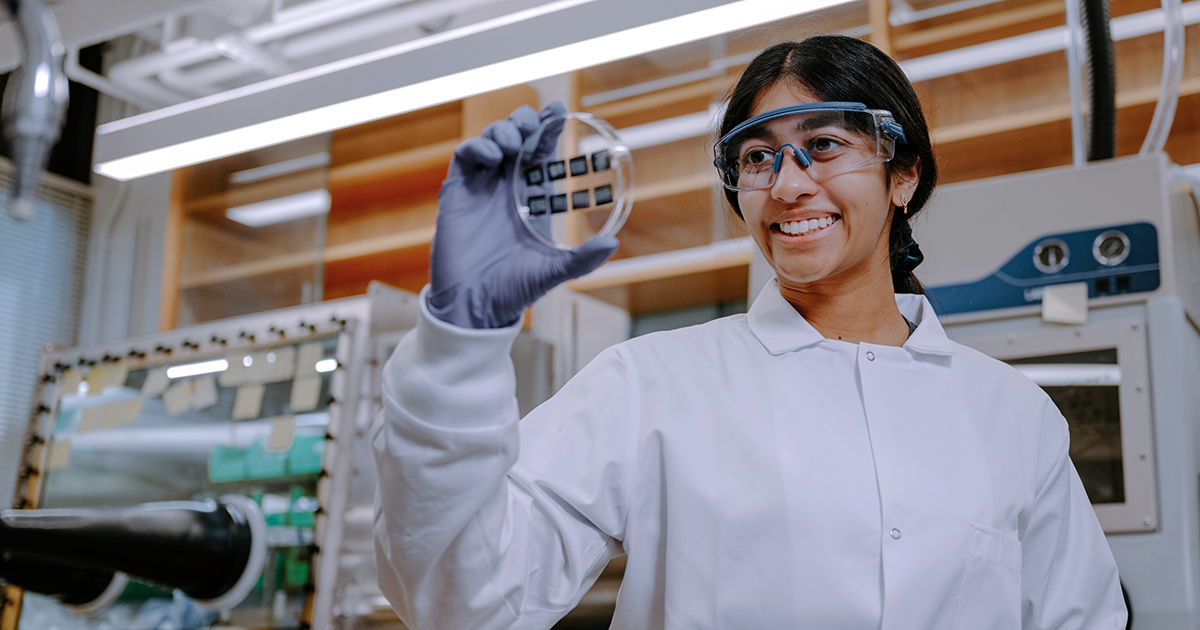Chemical Engineering
Use innovative ideas to transform raw materials into high-value products and processes. As a chemical engineer, you’ll harness chemistry and chemical properties to solve real-world problems — fueling cleaner energy, better medicine and smarter manufacturing.

Why Purdue?
Applying
Applying to engineering in West Lafayette
To study chemical engineering at Purdue, you will apply to the first-year engineering program. All engineering students in West Lafayette build a foundation for success by completing core first-year engineering curriculum before transitioning to a specialty major in the second year. Core curriculum includes courses in math, chemistry, physics, computer programming and communication skills, as well as introductory engineering coursework that explores career options to help you identify which specialty major is the right fit.
The priority application deadline for first-year engineering is Nov. 1. Applications received after Nov. 1 for this competitive major will be evaluated based on available space.
With a degree in chemical engineering, our students are prepared to succeed in high-impact careers across industries like pharmaceuticals, product development and energy including:
- Chemical engineer
- Bioprocess engineer
- Data analyst and process modeler
- Environmental engineer
- Food process engineer
- Process engineer
- Semiconductor process engineer
With hands-on research experience and world-class instruction, our graduates launch careers at top companies such as:
- Avient Corporation
- Cargill
- Conagra Brands, Inc.
- Dupont
- Exonmobil Corporation
- Eli Lilly & Company
- Procter & Gamble
You should pursue the most rigorous high school curriculum available to you. Succeeding in challenging courses will make you a stronger candidate for Purdue’s competitive admission process and better prepare you for college success.
Minimum high school coursework (many applicants exceed these minimums):
- Math – 4 years
- English – 4 years
- Lab science – 3 years
- Social studies – 3 years
- World language – 2 years
In addition to meeting or exceeding the minimum high school course requirements, our holistic review process places particular emphasis on key academic courses such as:
- Calculus (if available at high school)
- Four years of laboratory sciences, including:
- Biology
- Chemistry (expected)
- Physics (if available at high school)
Connect
College of Engineering
Explore nearly 20 majors in one of the best engineering schools in the country for academics and career preparation.
Contact
Office of Future Engineers
(765) 494-3975
future-engineers@purdue.edu
Visit
Experience for yourself all that Purdue has to offer with opportunities to explore in-person or virtually.
Apply
Ready to take the next step? Apply to begin your journey at Purdue in engineering.
Transfer to Chemical Engineering
Purdue admits to individual majors. Transfer students must meet Purdue’s overall transfer criteria, as well as any major-specific requirements. Before you apply, check the closed programs page to confirm this major is open to transfer students. If it is, refer to the information below for major-specific transfer criteria.
- Minimum 3.0 GPA
- For detailed admissions requirements to transfer into any of Purdue’s engineering majors, review our engineering transfer criteria.









